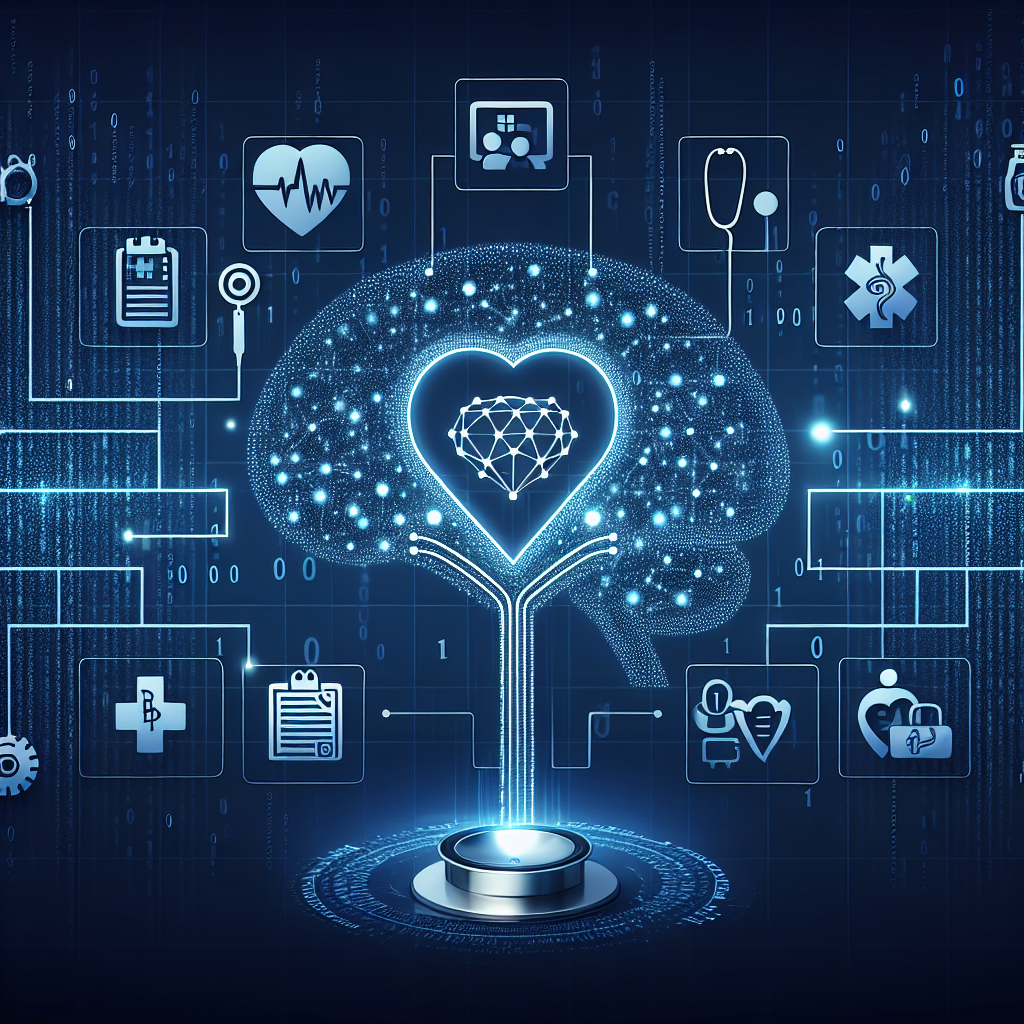The Impact of AI Integration on Healthcare Interoperability
Introduction
Artificial Intelligence (AI) has been revolutionizing the healthcare industry in recent years, with the potential to improve patient care, reduce costs, and increase efficiency. One area where AI is making a significant impact is healthcare interoperability, the ability of different systems and devices to exchange and interpret data seamlessly. By integrating AI into healthcare interoperability solutions, providers can streamline processes, enhance data accuracy, and ultimately improve patient outcomes.
Impact of AI Integration on Healthcare Interoperability
1. Enhanced Data Sharing and Integration
One of the key benefits of AI integration in healthcare interoperability is the ability to enhance data sharing and integration between different systems and devices. AI algorithms can analyze and interpret data from various sources, such as electronic health records, medical devices, and wearables, to provide a comprehensive view of a patient’s health status. This holistic approach to data sharing can lead to more informed decision-making, better care coordination, and improved patient outcomes.
2. Improved Data Accuracy and Quality
AI technology can also help improve the accuracy and quality of healthcare data by detecting errors, inconsistencies, and anomalies in real-time. By automating data validation processes, AI can ensure that only high-quality, reliable data is shared and integrated across different systems. This can help reduce errors, minimize duplication of efforts, and enhance the overall efficiency of healthcare operations.
3. Predictive Analytics and Insights
AI-powered predictive analytics tools can analyze large volumes of healthcare data to identify patterns, trends, and insights that can inform clinical decision-making and care planning. By integrating AI into healthcare interoperability solutions, providers can leverage these predictive analytics capabilities to anticipate patient needs, identify at-risk populations, and optimize resource allocation. This proactive approach to healthcare management can lead to better outcomes, lower costs, and improved patient satisfaction.
4. Personalized Medicine and Precision Health
AI integration in healthcare interoperability can also enable personalized medicine and precision health initiatives by tailoring treatment plans to individual patients based on their unique characteristics and needs. By analyzing genetic, clinical, and lifestyle data using AI algorithms, providers can develop personalized care plans that are more effective, efficient, and patient-centered. This personalized approach to healthcare can lead to better outcomes, increased patient engagement, and improved quality of life.
5. Real-Time Decision Support
AI-powered decision support tools can provide real-time guidance and recommendations to healthcare providers based on the latest evidence, guidelines, and best practices. By integrating AI into healthcare interoperability solutions, providers can access these decision support tools within their existing workflows, enabling them to make informed decisions quickly and confidently. This real-time support can help improve clinical outcomes, reduce errors, and enhance patient safety.
FAQs
Q: How can AI improve healthcare interoperability?
A: AI can improve healthcare interoperability by enhancing data sharing and integration, improving data accuracy and quality, enabling predictive analytics and insights, supporting personalized medicine and precision health, and providing real-time decision support to healthcare providers.
Q: What are the challenges of integrating AI into healthcare interoperability?
A: Some of the challenges of integrating AI into healthcare interoperability include data privacy and security concerns, interoperability issues between different systems and devices, regulatory compliance requirements, and resistance to change from healthcare providers and organizations.
Q: How can healthcare organizations prepare for AI integration in interoperability?
A: Healthcare organizations can prepare for AI integration in interoperability by investing in robust data infrastructure, adopting interoperable standards and protocols, developing AI expertise within their workforce, ensuring data privacy and security measures are in place, and fostering a culture of innovation and collaboration.
Q: What are the potential benefits of AI integration in healthcare interoperability?
A: The potential benefits of AI integration in healthcare interoperability include improved data sharing and integration, enhanced data accuracy and quality, predictive analytics and insights, personalized medicine and precision health, and real-time decision support for healthcare providers.
Conclusion
AI integration is transforming healthcare interoperability by enhancing data sharing, improving data accuracy, enabling predictive analytics, supporting personalized medicine, and providing real-time decision support. By harnessing the power of AI technology, healthcare providers can streamline processes, optimize care delivery, and ultimately improve patient outcomes. As AI continues to evolve and advance, its impact on healthcare interoperability is expected to grow, leading to a more interconnected, efficient, and patient-centered healthcare system.

